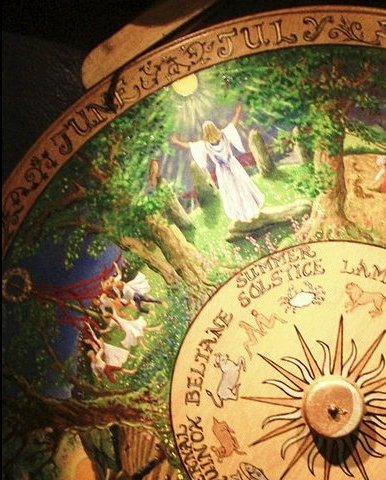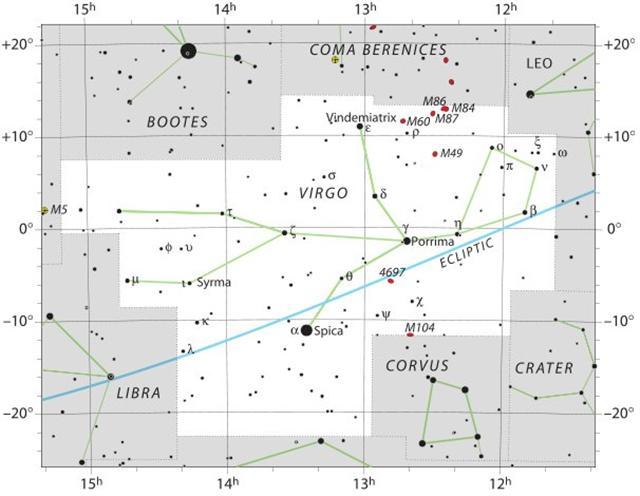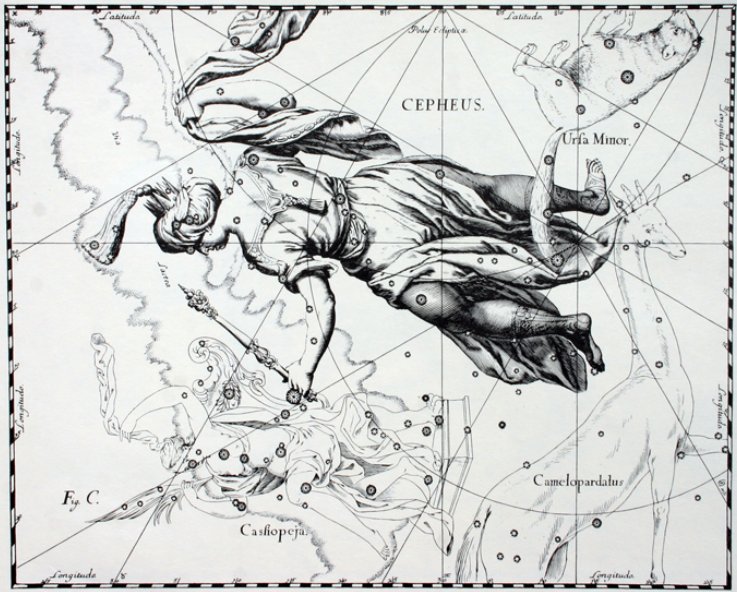Ba10.3
Right across (†) from Beltane
(*) was Samhain:
 |
 |
 |
 |
|
Ba10-7 (396) |
Ba10-8 |
Ba10-9 |
Ba10-10 (400 - 1) |
|
ki to ihe |
kua rere ki ruga |
o te marama |
|
Marama. 1. Month, light. The
ancient names of the month were: Tua haro,
Tehetu'upú, Tarahao, Vaitu nui, Vaitu poru, He Maro,
He Anakena, Hora iti, Hora nui, Tagaroa uri, Ko
Ruti, Ko Koró. 2. Name of an ancient tribe.
Maramara, ember. Vanaga. Light, day, brightness,
to glimmer; month; intelligent, sensible; no tera
marama, monthly; marama roa, a long term;
horau marama no iti, daybreak; hakamarama,
school, to glimmer; hare hakamarama, school,
classroom. P Mgv.: màràma, the light,
daylight; maràma, wise, learned, instructed,
moon. Mq.: maáma, light, broad day, bright,
instructed, learned; meama, moon, month. Ta.:
marama, moon, month. In form conditionalis
this word seems derivative from lama, in
which the illuminating sense appears in its
signification of a torch. The sense of light, and of
specifically the moon, appears in all Polynesia; in
Futuna and Uvea the word signifies the world. The
tropical extension to the light of intelligence is
not found in Nuclear Polynesia, therefore not in the
Proto-Samoan, but is a later Tongafiti development.
Maramarama, bright; manava maramarama,
intelligent. P Pau.: maramarama, intelligent.
Ta.: maramarama, light, brightness.
Churchill. The month sense is found in Tahiti,
Marquesas, Rarotonga and Maori associated with the
moon signification, and in Hawaii is specifically
dissociated therefrom to characterize a solar month.
Churchill 2.
 |
|
INVISIBLY CLOSE TO THE SUN: |
|
MAY 1 (BELTAINE) |
2 (122) |
3 |
4 (370 - 64 - 182) |

 |
|
VISIBLE CLOSE TO THE FULL MOON: |
|
ξ Sagittarii (287.1), ω Pavonis (287.3), ε
Aquilae, ε Cor. Austr.,
SULAPHAT (Little Tortoise Shell) = γ Lyrae (287.4),
λ Lyrae (287.7),
ASCELLA (Armpit) =
ζ Sagittarii,
BERED = i Aquilae (Ant.) (287.9)
*246.0 = *287.4 - *41.4 |
Al Na'ām-18 (Ostriches)
/
Uttara Ashadha-21 (Elephant
tusk, small bed)
NUNKI = σ Sagittarii (288.4), ζ Cor. Austr. (288.5),
MANUBRIUM
= ο Sagittarii
(288.8), ζ Aquilae (288.9)
*247.0 = *288.4 - *41.4 |
19h (289.2)
λ
Aquilae (Ant.) (289.1),
γ
Cor. Austr (289.3),
τ
Sagittarii (289.4),
ι
Lyrae (289.5),
δ
Cor.
Austr. (289.8)
*248.0 = *289.4 - *41.4 |
Al Baldah-19 (City)
AL BALDAH = π Sagittarii,
ALPHEKKA (Dish) MERIDIANA = α Cor. Austr.
(290.1), β Cor. Austr. (290.2) |
|
Jan 2 |
3 (80 + 288) |
4 |
5 (370) |
|
OCT 30 |
31 (80 + 224) |
NOV 1 (*225) |
2 (306) |
 |
And 17 days after Ba10-7 there was a mea ké according to
Metoro, i.e. 8 glyphs before the end of line Ba11:
 |
 |
 |
 |
 |
 |
| Ba10-11 (400) |
Ba10-12 |
Ba10-13 |
Ba10-14 |
Ba10-15 |
Ba10-16 |
| ko te ika |
kua hagai |
ma to koe tagata ora ra ko to ihe |
kua rere ki to
ragi - kua moe ko
hau tea |
ki ruga o te tagata -
kikiu atu |
kua rere te
manu |
|
Kikiu. 1. Said of food insufficiently cooked
and therefore tough: kai kikiu. 2. To tie securely; to
tighten the knots of a snare: ku-kikiu-á te hereíga, the knot
has been tightened. 3. Figuratively: mean, tight, stingy; puoko
kikiu. a miser; also: eve kikiu. 4. To squeak (of rats,
chickens). Kiukiu, to chirp (of chicks and birds); to make
short noises. The first bells brought by the missionaries were given
this name. Vanaga. Kiukiu (kikiu). 1. To resound, to
ring, sonorous, bell, bronze; kiukiu rikiriki, hand bell;
tagi kiukiu, sound of a bell; kikiu, to ring, the
squeeking of rats; tariga kikiu, din, buzzing; hakakiukiu,
to ring. Mgv.: kiukiu, a thin sound, a soft sweet sound. 2.
To disobey, disobedience; mogugu kiukiu, ungrateful; ka
kikiu ro, to importune. Churchill. |
 |
 |
 |
 |
 |
|
Ba10-17 |
Ba10-18 |
Ba10-19 (408) |
Ba10-20 |
Ba10-21 |
| i te tagata
ure huki |
no ona |
koia anake |
ka mou ia |
mai tae tuki
te henua |
|
Anake, unique. T Pau.: anake, unique,
to be alone. Mgv.: anake, alone, single, only, solely. Mq.:
anake, anaé, id. Ta.: anae, all, each, alone,
unique. Anakena, July. Ananake, common, together,
entire, entirely, at once, all, general, unanimous, universal,
without distinction, whole, a company; piri mai te tagata ananake,
public; kite aro o te mautagata ananake, public; mea
ananake, impartial; koona ananake, everywhere. Churchill.
Mou. 1.
Enough (moua, mouga). PS Sa.: mou, many. 2. To
get (mau); hakamou, id. 3. To use up, to expand, to
absorb; hakamou, to spend; hakamoumou, to use up, to expend.
4. To be silent, shy, dejected, stupid, taciturn, mute,
uncomplaining, silence, shut up!, attention!; mou no, to
speak in laconic terms, dull, mute, silence; hakamou, to
silence, to shut up, to quiet. Mq.: mou, peace, tranquil,
quiet. 5. To cease, to end, to finish, to conclude; a pact,
agreement; mou noa, to endure (mau); mou a te toua,
reconciliation; ina kai mou, always, eternal, perpetual;
ina e ko mou, incessant; e ko mou, always; tae mou,
permanent, perpetual; hakamou, to accomplish, to end, to
conclude, to consummate, to conciliate; e ko moumou,
indissoluble; hakamoumouga, the finish, termination, Mgv.:
mou, to quench the thirst. 6. To harass; mou no, to
suffer damage; hakamou, to abolish, abrogate, annihilate,
nullify, annul, impoverish, destroy, interrupt, exsterminate,
plunder, smooth out folds; moumou, to devastate, pillage,
devastation, destruction; hakamoumou, to demolish, to ravage,
to suppress. Ta.: mou, to extinguish, to destroy. Moua,
enough, past (mou, mouga). Churchill.
|
 |
 |
 |
|
Ba10-22 |
Ba10-23 |
Ba10-24 (413 = 14 * 29½) |
| kua
moe ko te manu |
ki to
ika |
e tagata haga era ki te
mea ke |
 |
 |
 |
 |
| Ba10-25 |
Ba10-26
(314 + 101) |
Ba10-27 |
Ba10-28 |
| ko agaagata |
kua
maa |
ko koe - e kua hatu ko to
toa |
e tagata haga - i to
ua e kua koti ko te
henua |
 |
 |
 |
 |
|
Ba10-29 |
Ba10-30 |
Ba10-31 (420 = 7 * 60) |
Ba10-32 |
| ma te
maitaki |
koia ra kua hoki to rarahoi |
kua tu ki to
toga |
Etagata itiiti |
|
Rara.
Mgv.: a branch of a tree. Ta.: rara, id. Mq.: rara,
small branches. Sa.: lala, id. Ma.: rara, id.
Churchill. Toga. 1.
Winter season. Two seasons used to be distinguished in ancient
times: hora, summer, and toga, winter. 2. To lean
against somehing; to hold something fast; support, post supporting
the roof. 3. To throw something with a sudden movement. 4. To feed
oneself, to eat enough; e-toga koe ana oho ki te aga, eat
well first when you go to work. Vanaga. 1. Winter. P Pau., Mgv.:
toga, south. Mq.: tuatoka, east wind. Ta.: toa,
south. 2. Column, prop; togatoga, prop, stay. Togariki,
northeast wind. Churchill. Wooden platform for a dead chief:
ka tuu i te toga (Bb8-42), when the wooden platform has been
erected. Barthel 2. The expressions Tonga, Kona,
Toa (Sam., Haw., Tah.), to indicate the quarter of an island or
of the wind, between the south and west, and Tokelau,
Toerau, Koolau (Sam., Haw., Tah.), to indicate the
opposite directions from north to east - expressions universal
throughout Polynesia, and but little modified by subsequent local
circumstances - point strongly to a former habitat in lands where
the regular monsoons prevailed. Etymologically 'Tonga', 'Kona',
contracted from 'To-anga' or 'Ko-ana', signifies 'the
setting', seil. of the sun. 'Toke-lau', of which the other
forms are merely dialectical variations, signifies 'the cold, chilly
sea'. Fornander. |
Notably the last glyph, drawn with a reversed figure missing
both head and tip of tail, marked the beginning of
something new, according to Metoro who here gave us a
Cardinal letter.
|
 |
31 |
 |
|
Ba9-49 (389) |
Ba10-32
(421) |
|
e
manu itiiti era e |
Etagata itiiti |
|
DEC
26 (8 * 45) |
JAN 27 (8 *
49) |
We should remember that the C tablet carries
392 glyphs on side a. And
also that
the next to last glyph on its side b represented
tagata haka-itiiti according to Metoro.
 |
 |
 |
|
Cb14-17 |
Cb14-18 |
Cb14-19
(348 = 12 * 29) |
|
kokoti hia te henua |
tagata
hakaitiiti |
i te henua |
|
Sept 26 |
27 (270 =
3 * 90) |
28 |
|
γ
Muscae (189.0),
AVIS SATYRA (Bird of the Satyrs) =
η
Corvi
(189.3),
ASTERION (Starry) =
β
Canum Ven.
(189.5),
KRAZ = β Corvi,
κ Draconis (189.7) |
α Muscae (190.2), τ Centauri (190.5), χ Virginis (190.7)
ALDERAMIN (α Cephei) |
Al Áwwā'-11 (The
Barker) /
Shur-mahrū-shirū-18
(Front or West Shur)
SOMBRERO GALAXY = M104 Virginis
(191.1),
ρ
Virginis (191.4),
PORRIMA =
γ
Virginis,
γ
Centauri (191.5)
*150.0 = *191.4 - *41.4 |
 |

|




























